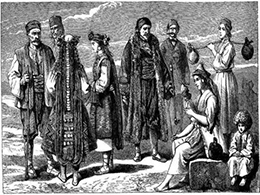
Bulgarian is a part of the South Slavic group, and it is the most native with the Macedonian language, with which it shares a linguistic peculiarity - these two languages are the only Slovene languages that have members with nouns. In its spoken form, the Bulgarian language preserved a great number of Old Slavic words, and it developed through three stages - old, middle and modern Bulgarian. The modern Bulgarian language is based on the Eastern and Western dialect, dating from the 15th century, but it was only in the XIX century that it was given the present form.
Bulgarian and the state are one of the oldest European traditions. The modern language suffered certain changes due to the influence of Western, and especially the English language, and the development of language was previously influenced by Latin, Greek and Turkish due to various invasions and attacks. It was only when the current form of the Bulgarian language developed, and the development of literature began. The last language reform was recorded in 1945. Bulgaria joined the European Union in 2007, and this language became one of its official languages.
In our team we have part-time court interpreters for the Bulgarian language, who at any moment are ready to respond to your need for translation and verification of a particular document that requires the stamp of a court interpreter for the Bulgarian language.
Our court interpreters for the Bulgarian language are at your service when needed:
- Translation of a court translator for the Bulgarian language
- Going to the field in cases where the presence of a court translator for the Bulgarian language, as well as all other forms of oral translation
- Verifies already translated text
- Proofreading and correction of the text in Bulgarian
We also offer:
- Translation from Bulgarian to Serbian
- Translation from Serbian to Bulgarian
- Translation from Bulgarian to other languages
- Translation from foreign languages into Bulgarian
